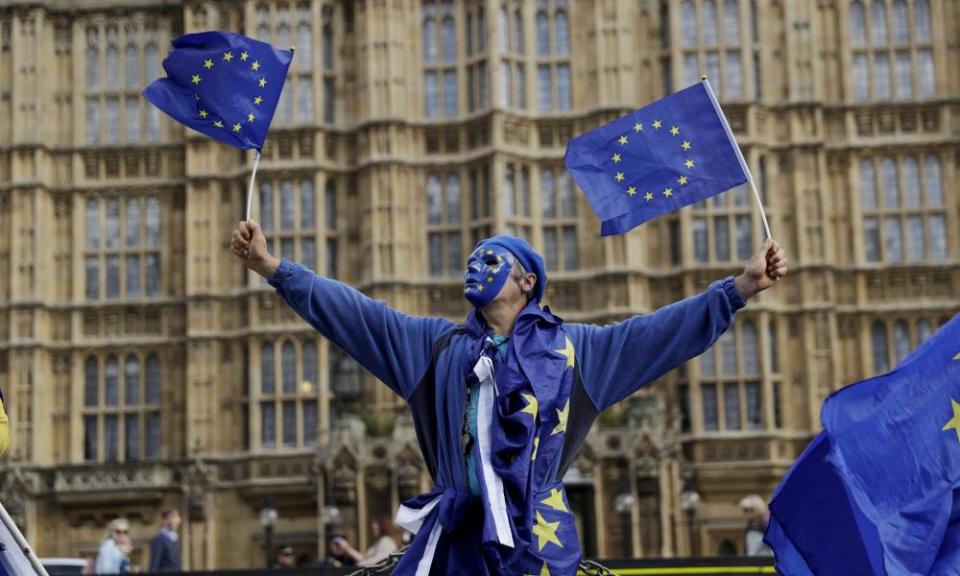Don’t blame lawyers for their Brexit bonanza

Some good Brexit news at last: lawyers are rolling in it. Profits at “magic circle” (that is, elite) law firms were reported to be a remarkable £2.6bn in 2017. While many have worried about the dampening effect of Brexit on business activity, lawyers have been in demand, working on mergers and acquisitions designed to shore up companies’ positions, and advising business leaders on the almost infinite variety of outcomes that Brexit might throw up.
Matthew Layton, managing partner of Clifford Chance, one of the elite firms, told the Times: “Our clients are seeing a very complex legal and regulatory environment. Unfortunately, I don’t think the landscape will get any simpler for clients, so the demand for legal expertise is only going to grow.”
Don’t you just love that “unfortunately”?
We must have law, so we must have lawyers. This is unavoidable. Many of us will need legal advice at one time or another, and it is better to take it from a qualified expert (them again) than from the barrack-room variety. If you are buying a flat, getting divorced, writing a will or need help with a bad situation at work, you will send for a lawyer. It’ll cost you. But professional help will be at hand.
Besides, it should not really come as a surprise that where there is confusion and anxiety there is also commercial opportunity. More than four centuries ago Montaigne observed, in one of his shortest essays (Book 1, chapter 22), that “one man’s profit is another man’s loss”.
You would have to condemn all sorts of ordinary activity if you are against profit-making, Montaigne says. “The merchant benefits from the excesses of the young,” he writes, “the farmer from the high price of corn, the architect from dilapidated housing, and lawyers from court cases and legal disputes. Even priests depend on our sins and ultimate death for their honoured place in society,” he adds.
Lawyers do not expect sympathy. But perhaps even they might deserve a more generous hearing every now and then. Jobbing solicitors are hardly fat cats. Barristers are self-employed, and face all the uncertainties that go with that status. Legal aid fees have been reduced dramatically. Earnings are down and strike action has been taken. A lot of the fun has gone out of lawyering. Meanwhile, the hours remain long and the paperwork endless. And now the march of the machines threatens to take away some of their jobs.
Robots are already being used to process some of that paper mountain (“document discovery”). Some of the bread-and-butter of legal work can be outsourced, either to cheaper workforces or straight to the robots themselves. A study by McKinsey estimated that 22% of a lawyer’s job and 35% of a law clerk’s job could be automated. (Suspiciously precise figures there. I hope they got a lawyer to check them.)
At least we can say this for Brexit: it has created work for some people. Lawyers, mainly. And this arouses the gentle suspicion of one noted pro-European and distinguished QC, Jolyon Maugham. “The legal profession was pretty strongly pro remain. And – during the referendum campaign – was often maligned as ‘corporatist’ and ‘establishment’,” he tells me. “But you look at law firm profits now and wonder to yourself, ‘Have children ever before voted against Christmas?’”
The sorry sight of the new secretary of state for exiting the EU, Dominic Raab (lawyer, ex-Linklaters, magic circle) trying to defend the government’s Brexit white paper in parliament this week while copies of said white paper were being lobbed into MPs’ laps was not a proud moment. The proper management of documents is a pretty basic requirement for any good lawyer. This was not a good advertisement for Raab’s former profession any more than it was for his chosen one of politics.
But don’t blame the lawyers if Brexit is turning into a commercial bonanza for them. They are providing a necessary professional service at a moment of great difficulty. Our final departure from the EU – if that does come to pass – will have to be set down and documented by lawyers. We will be counting on them to get it right.
The fact is, lawyers are always going to be there at the heart of the action, in the middle of the deal, demanding their fees, whether you like it or not. What are you going to do – sue me? That would only create more work for you-know-who.
• Stefan Stern is co-author of Myths of Management and the former director of the High Pay Centre

 Yahoo News
Yahoo News 